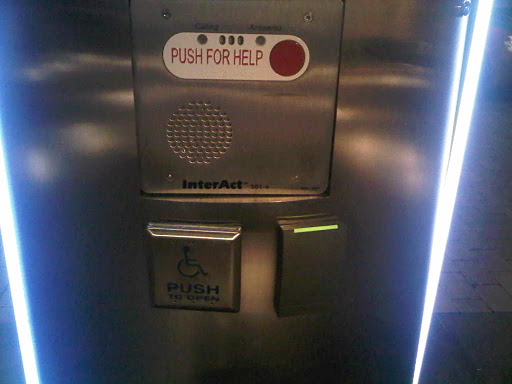Emergency preparedness: Current AODA requirement for persons with disabilities
Under the Integrated Accessibility Standards Regulations of the Accessibility for Ontarians with Disabilities Act (AODA), effective January 1, 2012, all organizations in Ontario must provide and make available in an accessible format or with appropriate communication supports, information about emergency response plans and public safety to customers, clients & employees with disabilities.
As well every employer must provide individualized workplace emergency response information to employees who have a disability, if the disability is such that the individualized information is necessary and the employer is aware of the need for accommodation due to the employee’s disability. If an employee who receives individualized workplace emergency response information requires assistance and with the employee’s consent, the employer must provide the workplace emergency response information to the person designated by the employer to provide assistance to the employee.
Once the plan is written and in place the individualized workplace emergency response information must be reviewed:
- When the employee moves to a different location in the organization
- When the employee’s accommodations needs or plans are reviewed or change
- When the employer reviews its general emergency response policies
The obligation to provide information in an accessible format also applies to your company’s violence and harassment policies, pandemic plan, hazardous material incident response plan, fire emergency procedures and first aid plan, among other emergency response procedures which may be unique to the nature of your business or industry.
Employers in Ontario should already be in compliance with similar stipulations under the Fire Protection and Prevention Act and the General Duty under section 25 of the Occupational Health and Safety Act.
The accessibility standard under the AODA adds the requirement that any emergency response plan and safety information will need to be made available to the public/employees/clients/customers “in an accessible format or with appropriate communication supports upon request”.
Accessible formats may include for example, large print, recorded audio and electronic formats and other formats usable by persons with disabilities. Communication supports may include, but are not limited to, captioning, alternative and augmentative communication supports, plain language, sign language and other supports that facilitate effective communication.
Remember that the definition of an “emergency” may include “disease or health risk”.
The plan should identify potential hazards, provide guidelines and cover prevention activities, preparedness activities and response activities. These guidelines should be reviewed on an on-going basis.
To achieve these requirements it is recommended your company consult with our bona fide accessibility experts who have developed these documents and practices for other similar companies. The process should include audits of the workplace and interview with employees, clients and customers who will require assistance during emergency situations to determine how to deliver the such safety information; in essence the audit and review will help your organization you need to find out how different disabilities can affect a person’s ability to respond in emergencies and how you can address this in your plan. Part of this process should include planned emergency drills with employees.
The aim of the drills is to determine if the plan in place will work for all employees, customers and clients who access your facility.
The ability to communicate quickly & effectively with all employees, clients and customers is critical during an emergency. To make your company’s written emergency plan accessible to all persons with disabilities, the plan must cover emergency notification options, communication devices used by people with disabilities, and how to communicate with employees and customers with a variety of disabilities.
For more in depth information and to discuss partnering with OPC Inc’s Accessibility experts in developing your AODA compliant processes please contact us at AODA@OptimalPerformance.ca We are here to help make your AODA programs and processes a success.
Olga Dosis Senior Accessibility Consultant
JE Sleeth Ergonomic Consultant


